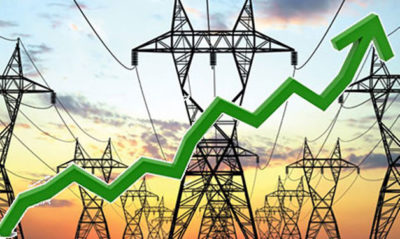Wholesale Energy costs have doubled in some cases, seeing up to 50% increases in retail cost – energy efficiency solutions not as effective as many hoped
Consumer electricity prices are still seeing unseasonably high retail costs for new power contracts, in some cases 50% or more higher than the previous contracts, causing issues in some sectors. Historically, energy prices fall in summer along with wholesale rates, for many reasons, but mainly due to increased solar generation, and lower demand on both gas and power – Lower gas demand allows greater feeding to Gas-for-power generators, further lengthening surplus power load.
However, this year, rather than the traditional fall in wholesale we would expect, which would translate to cheaper retail prices, we’ve seen huge rises. This is in part due to European providers, which the UK is increasingly reliant on to maintain the network levels, increasing prices since the Brexit vote as they were expected to do, although many other factors have also been taken into account, such as increasing global Crude oil prices – The most recent re-applied sanctions to Iranian Exports being the latest in a litany of events which have driven oil prices up.
There has been a marked increase in the number of companies buying into various Energy efficiency solutions in an effort to combat cost driven operational concerns, however there has been very little evidence that these solutions are actually saving significant enough amounts to justify the cost of many of these managed solutions. In most cases, energy consumptions are reduced by a small degree, which in itself is laudable from an environmental point of view, however, generally the return from these is not outweighing the initial/ongoing cost. We’ll continue to monitor this sub-sector, keeping a sharp eye on developments with a view to returning to the issue when some positive impact from purchasing these can be ascertained. Watch this space!
Jim Corley, a Senior Broker at True Gas, comments, “There is major concern in some sectors, specifically manufacturing and hospitality, where margins tend to be low in the UK anyway, and energy makes up a significant proportion of operational costs. With a fairly dire outlook for the short and medium term futures on the power commodity, it’s not looking likely to improve before 2021, and even this may not be the case as we move closer to the season – Power futures for this summer were looking to be fairly seasonally normal when looked at in 2016. I would strongly recommend looking at strategic procurement solutions to ensure costs are kept under control, and the impact is mitigated somewhat by securing gas and power at the best time by market analysis. Furthermore, we have noted that in comparison to energy efficiency measures, strategic procurement offers much greater loss mitigation potential at the present time – We don’t expect this to remain the case much beyond 2023 when newer technologies will be much lower as a baseline cost, and many may present tax breaks when emerging as a reward for helping HM Government with climate change targets, but certainly for now, strategic procurement wins. A major manufacturing client of ours have already been able to present over £100,000 savings based on securing when the market was low, and being able to take advantage of this over the course of the next few years as prices rose, but costs did not.”
Author – Jim Corley, Senior Broker at True Energy Brokers Limited
